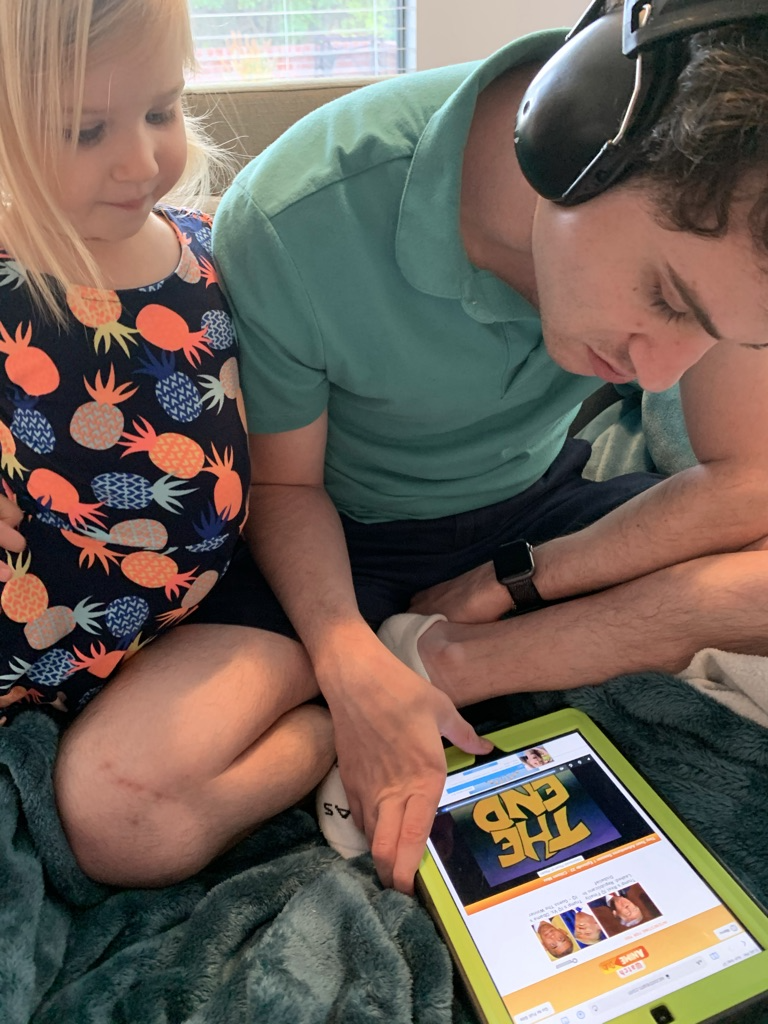Navigating the holidays with autism: Sometimes, it just takes a good cry

I had a moment. You know the kind. When you start telling a story and express emotions so deeply, you’re moved to tears – whether from laughter or sadness.
During a recent call with a dear friend, we talked about holiday plans. I also shared our family’s Thanksgiving experience when our out-of-state daughter, Ally, her spouse and our two young grandchildren came to visit. Our adult son Matt, who has autism, lives at First Place-Phoenix but also joined us for several days at our family home.
Not only has his life been largely defined by his abilities and disabilities, but so has our daughter’s. Ally is a rabbi. Compassionate. Full of love. A natural educator and strong advocate for the underdog. She’s also a remarkable ima (Hebrew for mother). After a few days filled with the commotion of little people – their precious voices, squeals and laughter and, at times, not-so-precious cries – Matt had had enough.
It was simply too much for his orderly life and sensitive ears. Generally a happy man who enjoys playing countless games of Uno with his 4-year-old niece, Matt expressed overwhelming sadness through tears no one could make go away. With limited speech, his quiet weeping through all-time favorite games, baking activities and meals spoke silent volumes, prompting Ally to cut her visit short, recognizing it would be best for everyone.
My head and heart hurt. They still do.
Siblings often make sacrifices for autistic relatives
Throughout her life, Ally has made many sacrifices for her autistic brother. Early on, much of that happened without her active involvement, as her dad and I did our best to navigate the divide and implement a strategy to give each the attention they deserved. Sharing that Thanksgiving story unleashed many tears – not only because I didn't want Ally to take the grandkids home a day too soon, but for so many of those prior days and years.
While we don’t buy into the myth that “you’re only as happy as your saddest child,” we know too well about tending to the crying child and all that represents for families living with loved ones with special needs.
Housing shortage looms:Not enough homes for adults with autism
During our call, my friend brought up the famous speech by basketball coach Jim Valvano (aka Jimmy V, founder of V Foundation for Cancer Research), reminding us to “laugh, think and cry – every day!”
This week, such an opportunity awaits with the national PBS premiere of the award-winning documentary about autism, “In A Different Key,” airing at 8 p.m. Dec. 13 and 2:30 p.m. Dec. 14 (local times) on KAET Channel 8.
This extraordinary film shines a bright light on Greater Phoenix, various local leaders and our supportive community – acknowledged by PBS NewsHour as “the most autism-friendly city in the world.” It’s the best representation of the broad spectrum of autism and neurodiversities ever produced, underscoring the essential, collective role of family, friends and community.
Adults with autism need supportive housing
Recognition of Phoenix is well deserved, thanks to First Place AZ celebrating its 10th year and the Southwest Autism Research & Resource Center its 25th.
Nonetheless, there’s so much more to do, evidenced by findings from First Place Global Leadership Institute’s first-ever Greater Phoenix Housing Market Analysis (to be released next month) acknowledging the invisible population of adults living with autism and/or intellectual/developmental disabilities (A/I/DD) in dire need of supportive housing.
We need strong tri-sector leadership – like that of Home Matters to Arizona and AHCCCS’s Housing and Health Opportunities (H2O) – driving innovative, affordable solutions for the long term, where we can be more impactful through home than any clinical intervention.
Jimmy V reminds us that a good life is filled with a dream or goal – and a reason to work for it.
I can relate. As the mother of two and “Dede” to beloved grandchildren, my work is never done.
It takes practice to listen and get it right
But as a community developer, my collaborative work is just beginning in an effort to better accommodate and plan for the 1 in 44 U.S. children diagnosed with autism annually and more than 1.4 million U.S. adults with A/I/DD living with caregivers over age 60 representing a slippery slope to potential displacement and even homelessness.
Like people, communities are perfectly imperfect. They require constant care, feeding – and the willingness of us all to learn, practice and get it right.
While Ally assessed and adjusted to the situation at hand, we must also continue working together to help change the way Arizona and the nation address such relentless challenges, ensuring enduring inclusion – this holiday season and beyond.
Denise D. Resnik is founder and president/CEO of First Place AZ and co-founder of the Southwest Autism Research & Resource Center.
This article originally appeared on Arizona Republic: Autism is a complicated family affair for the holidays and beyond

